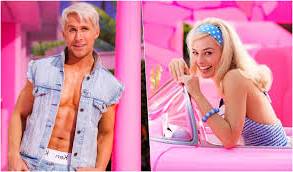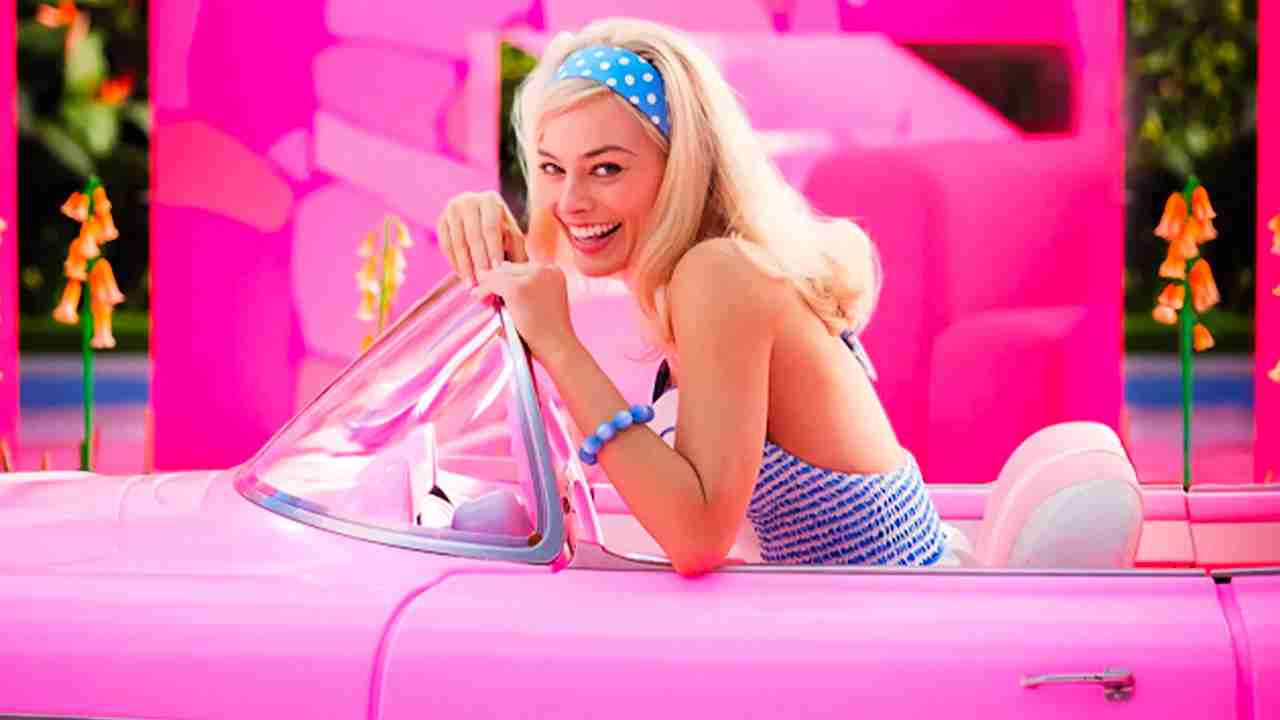As elusive as an eel, Greta Gerwig’s Barbie appears as an object that you don’t know how to grab. If I read it like a blockbuster, its supposed subversive nature against Barbie comes to light. But when you take note of the neo-feminist reimagining of the most famous doll of all time, there is a powerful resurgence of Mattel’s consumer product, which for decades has established itself as the purveyor of the All-American dreams of millions of girls scattered around the world. over the globe.
Blond, perfect, 90-60-90, flawless, unspeakable Wasp doll, yet able to change in the decades that accompany changing times. And the opening of the film with a hilarious quote from 2001: A Space Odyssey confirms both the status of a toy for growing-up women and the devastating transformation of the doll concept. No china, no rags, no Pannolenchi. plastic; a black gold product that changed our lives. A colorful plastic that can be molded into any shape and color.
But maybe I’m overestimating Barbie. What remains an enjoyable film overall, with an extraordinary production and perfect photography by Rodrigo Prieto, as well as music written by former Bowie guitarist Mark Ronson. Pleasant, I said, but also a little taken aback by his hoops as well as his quote (we have Forrest Gump, The Truman Show, and Fight Club among many sources). Not to mention the modern morality “on the side of the girls”, exposed by didactic explanations that weigh everything down.
Let’s start with the good: in addition to the excellent work of the technical departments (Barbieland is a visual marvel), we have her: Margot Robbie, the producer of the film. Perfect Barbie. An actress of boundless beauty and acclaimed skill, who perfectly plays up the various facets of this Barbie stereotype (i.e. the first of the Barbies designed by Mrs. Ruth Handler, played by Rhea Perleman in the film). On his side is the equally worthy Ryan Gosling, an actor who, having found the right role, shows qualities that are not always obvious. Around them is the Barbie universe, defined by the many types of Toddlers and Kens that have changed over the years.
I said that the beginning is sparkling; a colorful and caramel universe where every character lives the same glorious sunny day every day, doing the same wonderful things, no sex and no death. A shower that washes without water, milk that quenches thirst without pouring it into a cup, legs perfectly repeat the position on 12 heels, with or without shoes. In fact, no one gets hurt, and if this happens, Barbie doctor will come and cure without any operations. Let’s just say that if Barbie laughs, then the Kens are a little less, relegated to the secondary roles of the eternal boyfriends of the only queen of the game. Then something breaks; the stereotypical Barbie is achieved by a “bad thought”. Communication between her and her owner was severed.
This is the beauty of the film, which unfolds with the usual storyline of the hero’s journey in search of himself. Barbie-Ulysses, Barbie-Pinocchio, who, after a series of vicissitudes, is reunited with the mistress, who is not the Daughter, who resists the myth of Barbie and, therefore, is already a neo-feminist, but the mother of the latter. It is no coincidence that this America Ferrara is the antithesis of any Barbie from the Ugly Betty series. Che Fatality works for Mattel under the direction of creator Will Ferrell. And that’s where the ups and downs of a movie start, which suddenly becomes boring when it’s funny, and when it’s boring, it immediately becomes funny again.
The logical thread (ideo) is neo-feminist, in the American style. That is, more cheerful than in the past, but also more prone to a certain dogmatism, which is at odds with all the compromises of the hedonistic generation and at the same time does not want to obey the logic of consumption. A prickly but anti-prickly generation, who, however, cannot resist the charm of their childhood toys. The leading exponent of this mentality is the outsider character Weird Barbie (Kate McKimm), a synthesis of all the shuffled, repainted, mutilated Barbies in the world (with some reference to Harley Quinn from Suicide Squad, played by Robbie).
To say: When we have Will Ferrell in action, we’re out of parts of the usual rowdy and kiddie comedy Saturday Night Live. And that puts Gerwig’s film in the “lower” rungs of entertainment cinema. Along with this we have the amusing characterization of Stereotype Ken, who, finding that men rule the world, decides to import patriarchy into Barbieland, spiced up with the cult of horses. On the other hand, Ken in the city does not waste time dressing up as a cowboy, the choice seems natural. But in the end, everything is rebuilt, with the exception of the main character, who refuses the role of Doll No. 1. “How funny I was when I was a puppet.”

This is how “Barbie” looks, a little unexpected, a little risqué, a little non-conformist choice of her – everything is expected. A bit boring due to the ambiguous screenplay the director co-wrote with her partner Noah Baumbach and some repetitiveness that doesn’t help the pace of the film. But we certainly cannot define Gerwig’s work as a lost bet. All in all, given the instances and extenuating circumstances, Barbie is probably the best possible movie about the perfect woman. The reverse of Paul Bartel’s Wife Factory, whose dystopian ending is the exact opposite of this film. Or the golden but fake world of Olivia Wilde’s Don’t Worry Darling, where the objectification of women was reimagined in a Dician way. However, the film is a box office success and in some scenes applause (transgender) open scenes. In general, it is always a pleasure to watch films with such warmth.
BARBIE
(2023)
Directed by: Greta Gerwig
With Margot Robbie, Ryan Gosling, Will Ferrell, America Ferrara

